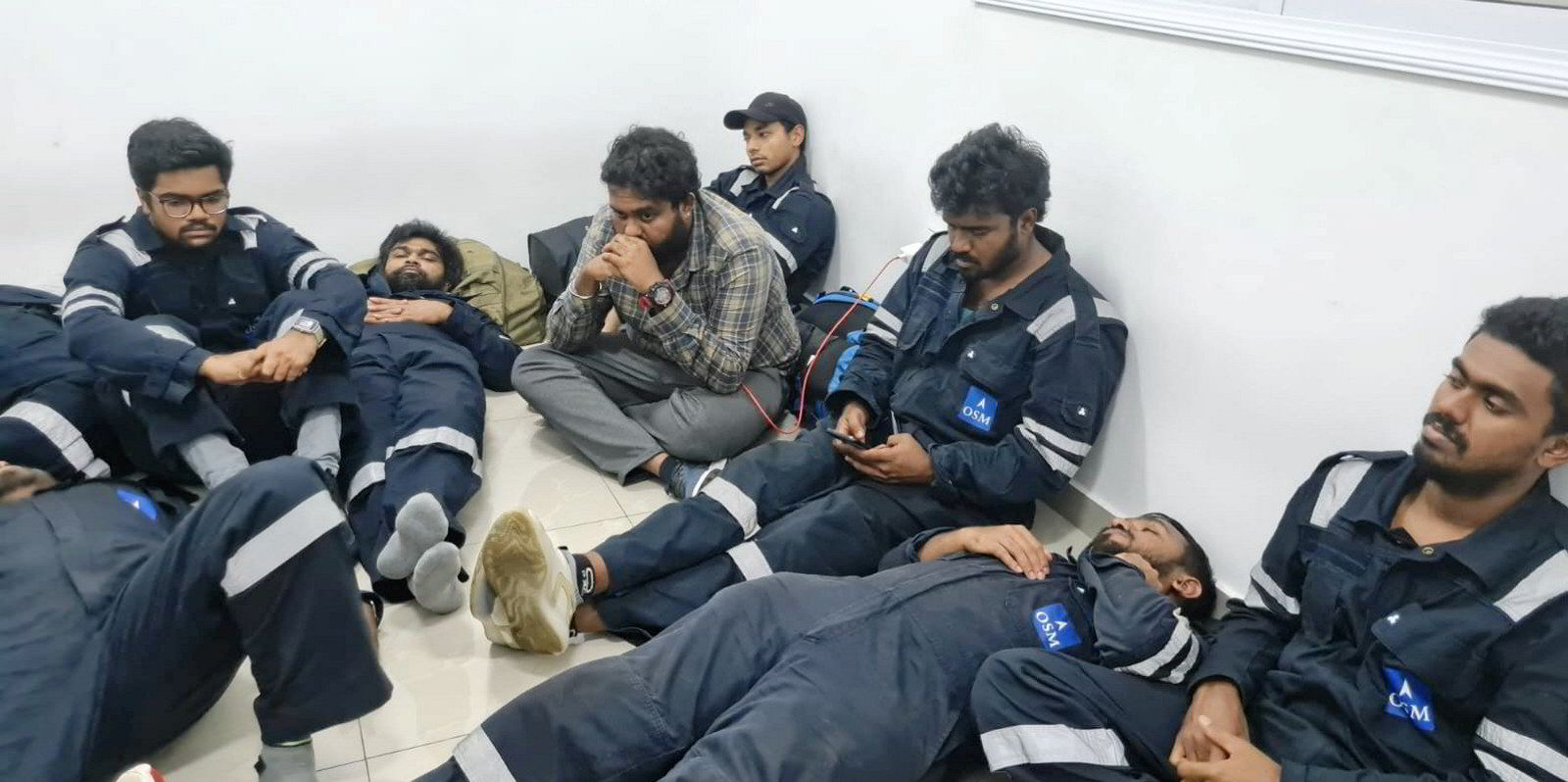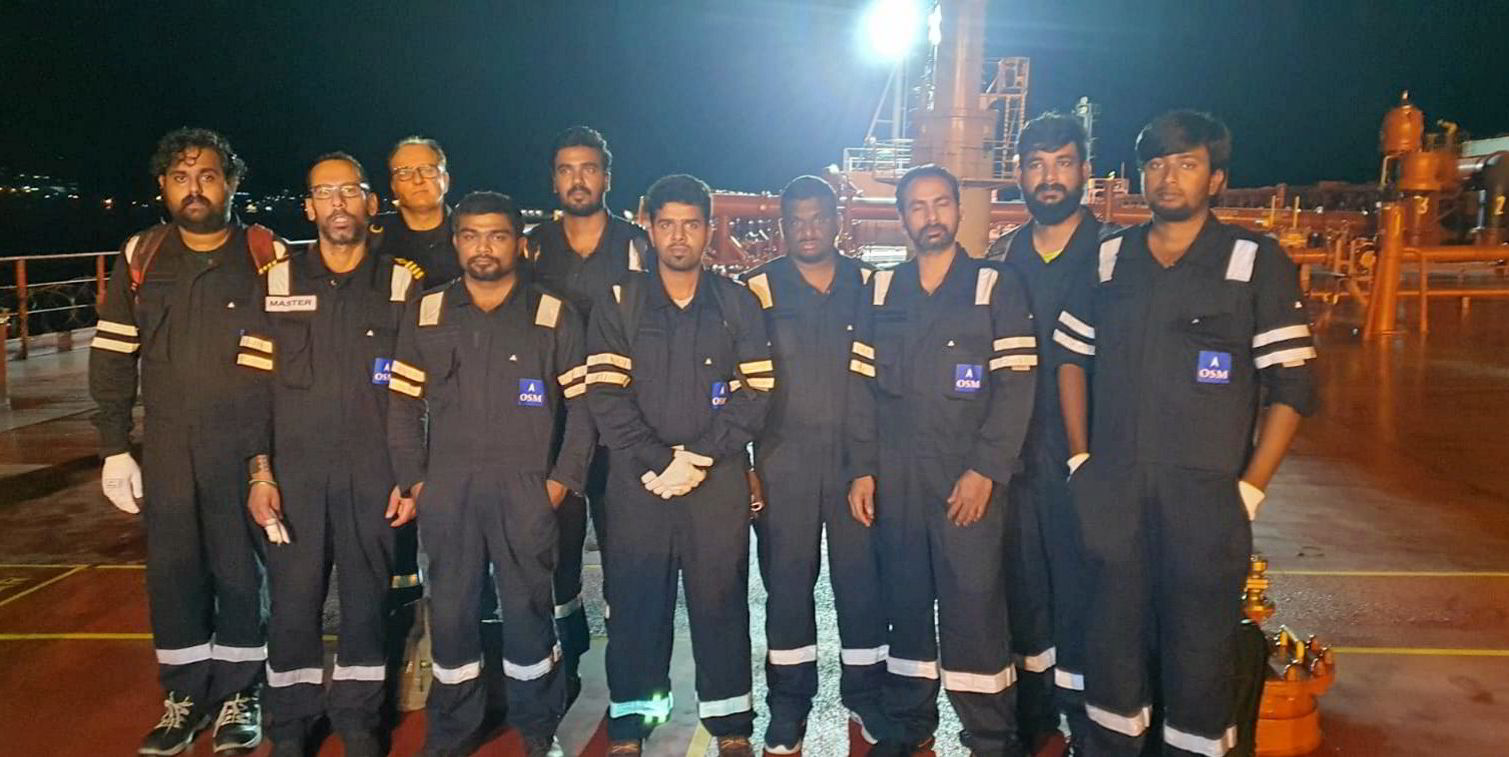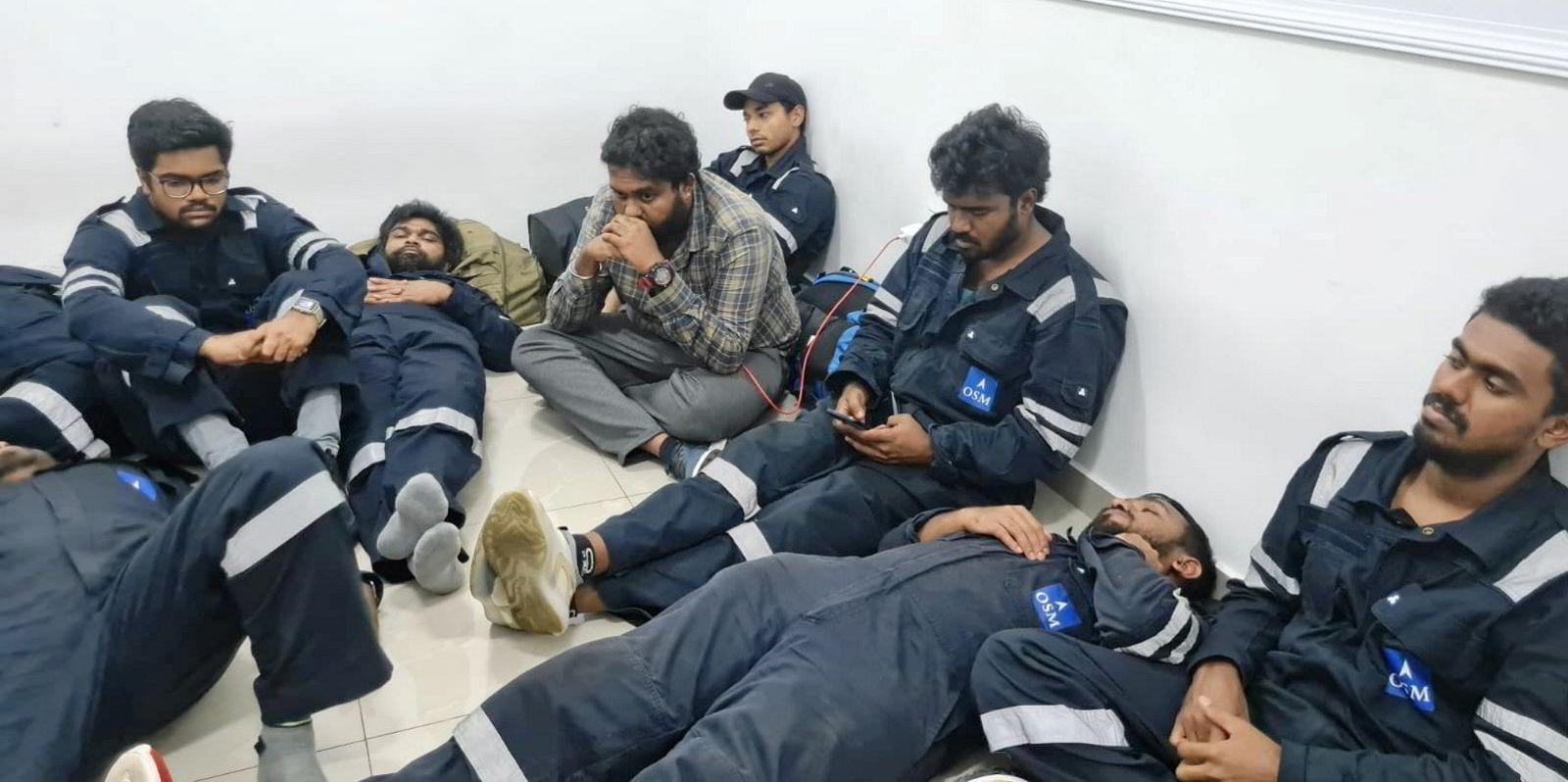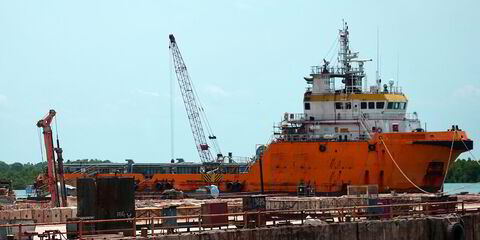The owner of a VLCC has apologised for embarrassing the Nigerian Navy and agreed to pay $15m to secure the release of the ship and crew after nine months in detention.
The apology and payment were part of a plea deal rubber-stamped this week by the Nigerian courts that cleared the way for the 300,000-dwt Heroic Idun (built 2020) to leave with its 26 crew members on board.
Charges against the crew related to allegations of piracy and oil smuggling were dropped as part of the agreement that will also allow the company to continue trading with Nigeria, according to a statement posted online on Friday.
Owner Idun Maritime, a subsidiary of Ray Car Carriers, which has always denied any wrongdoing by the crew, said it was “pleased that this unfortunate incident has now been resolved” and it looks forward to helping the seafarers return to their families.
The tanker has been held by Equatorial Guinea and Nigeria since August last year after it left an offshore terminal off Nigeria and reported a possible incident of piracy following a night-time approach by an unidentified ship, later revealed to be a Nigerian naval patrol vessel.
“The owners, on behalf of their vessel and crew, wish to publicly apologise to the Federal Government of Nigeria for that report and express their sincere regret for the difficulties presented to the navy and any embarrassment that may have resulted from this incident,” the owner said in the statement posted on Lloyd’s List as part of the agreement.
“At no time did the owners wish to undermine the reputation of the Nigerian Navy or the efforts undertaken by the Nigerian Navy in countering piracy and oil theft in Nigerian waters.”
The size of the payment was revealed this week when the Chief of Naval Staff, Vice Admiral Awwal Gambo, told Nigeria’s Vanguard newspaper that the ship would be released after the $15m is paid.
He said the “$15m as restitution to the country … is a resilient indication that the Nigerian Navy, as the nation’s maritime sentinel, will stop at nothing to ensure the domain is safer for sustainable development of the nation’s blue economy”, the newspaper reported.
A Nigerian court agreed the deal two weeks ago, but maintenance and paperwork issues have delayed the Heroic Idun’s departure. It was not immediately clear when it will leave. The tanker remains off the coast of the coastal city of Port Harcourt, according to ship tracking data.
‘Trumped-up charges’
The owner, insurer, charterer, ship manager and shipping organisations have all insisted that the crew did nothing wrong, while a shipmasters’ association claimed the charges against the seafarers were “trumped up” and tantamount to extortion.
The detention of the ship coincided with the run-up to the Nigerian presidential election. Rampant oil theft was a key issue during the campaign.
The case against the Heroic Idun was brought to an end after months of bargaining that resulted in the ship admitting a single maritime criminal charge. A fine of 5m naira ($11,000) was imposed, along with an apology and the $15m payment.
The Marshall Islands last week brought a new claim before a top maritime court over the seizure of the tanker in what is likely to be the start of months of scrutiny of the actions of Equatorial Guinea and Nigeria.

The flag registry is seeking damages at the International Tribunal for the Law of the Sea from Equatorial Guinea over the alleged illegal detention of the ship from last August.
The Heroic Idun and its crew were held for three months in Equatorial Guinea at the request of Nigerian authorities. It was subsequently forced to steam to Nigeria, where it has remained since November.
The detention of the crew was raised at the International Maritime Organization, which drafted new guidelines in March for seafarers detained on suspicion of committing maritime crimes.
They say that seafarers should be recognised as a special category of workers who need special protection because of the global nature of their work. The IMO called for accused seafarers to be treated fairly and said detention should be “for no longer than necessary”.(Copyright)




